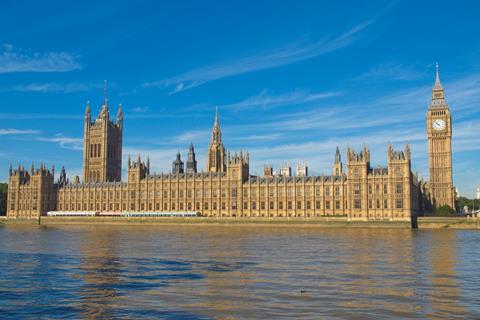Reforming business rates and cutting regulatory burden are two of the wishes hauliers want to see the new Labour government tackle.
The party’s landslide win produced the first Labour prime minister since 2010 and delivered a parliamentary majority of 174, just short of the historic 179 majority won by Tony Blair in 1997.
Speaking after the victory, Sir Keir Starmer cautioned that his aim of “rebuilding Britain” would take a while, but operators have told Motor Transport where they believe the government’s focus should be.
Jamie Hartles, CEO at Howard Tenens Logistics, said his company “would like to see a comprehensive plan that recognises the longer-term skills gap challenges, particularly in the HGV driver space, a commitment to supporting the industry in reducing its impact on the environment and an overdue reform to business rates.
“This should all be led by a dedicated cross-departmental logistics minister with the appropriate powers required to underpin such an important sector,” he said.
Rob Symes, MD of The Hazchem Network, pointed out that stability was needed: “The Hazchem Network would like to see the new government keep the minister for transport in place long enough to understand our industry, then work to make the sector more productive,” he said.
Symes said that he would also like to see the reintroduction of the 7.5-tonne category on car licences, a reduction in business rates and utilities bills, “and getting the traffic commissioners to clamp down on phoenixing transport companies would all aid the industry,” he added.
Ian Barclay, operations director at Roger Warnes Transport, said: “We would like to see a reduction in regulatory burden, critical investment in our crumbling roads infrastructure and a wider range of policies and innovation to ensure that the road transport sector thrives in an environmentally conscious way.”

Dave Ashford, director at KBC Logistics, said the industry’s image needed overhauling: “For me, it’s not so much law changes but more a case of improving facilities and the overall image of the industry,” he said.
“Nobody seems to realise that transport is the lifeblood of this country and yet it seems the government, every council, parking company, enforcement agency, planning authority and TfL are hell bent on making life difficult for hauliers.
“We penalise drivers financially for taking a break when they are exhausted and yet vilify them when they fall asleep at the wheel, nobody wants ‘dirty, noisy’ trucks in their towns and cities – and yet they still want their supermarket shelves full of their latest cravings!”
The RHA said it looked forward to working with the new government and that there was a key opportunity over the next 100 days to make early improvements the industry needed: “There are a range of policies outlined in our manifesto that we will be looking for the new government to bring forward,” it said.
Logistics UK said the incoming government could begin “kickstarting growth” in its first 100 days by partnering with the logistics sector to develop Labour’s promised industrial strategy, as logistics can boost productivity for all areas of UK plc.
“Logistics underpins all sectors of the economy to deliver for households, businesses and public services, every day,” said chief executive David Wells OBE, “It is a major sector in its own right, employing 8% of the UK workforce. By involving our members in the development of the planned industrial strategy and the government’s missions, we are confident that logistics can deliver productivity gains to supercharge the economy by up to £8bn a year.
“Logistics has a critical role to play in kickstarting growth. It is vital that the new administration involves our industry in all areas of Whitehall decision-making on the economy, through the appointment of a dedicated minister for logistics and supply chain – our sector’s role and needs should be an integral part of all plans.”
The new government has also been urged by Jim French MBE, chairman of the Trailblazer Group for transport and logistics, to consult with the transport industry on reforming the Apprenticeship Levy and providing “a much more relevant training method to meet the needs of the industry”.
Up until 31 January 2024 the sector had paid £1.13bn in Apprenticeship Levy since it’s introduction in April 2017. Whilst figures are not available for the amount the transport sector has recovered from the 36 transport and logistics apprenticeships available, if the full funding amount was recovered from the 48,445 apprenticeship starters it would only amount to £384m.
“The current achievement rate for transport and logistics apprenticeships is just 38.4% so the amount of recovery is more likely to be £126m, just 11% of the Levy paid,” French said. “No wonder many logistics operators consider the Levy as just another tax.”
The transport and logistics sector employs 2.7m people but only recruits 8,000 apprentices a year.














